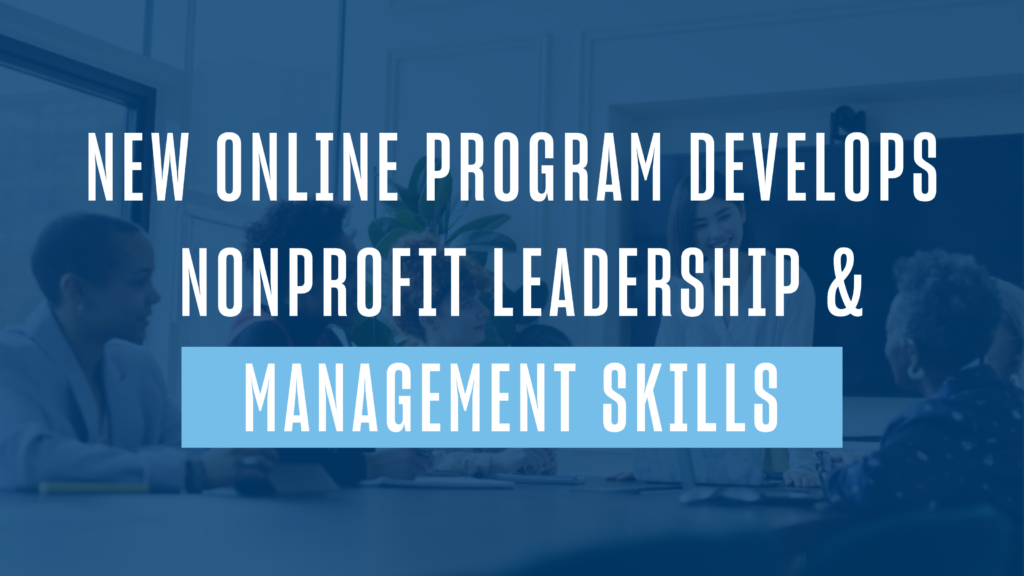In both large organizations and small teams, it’s important that at least one person has the ability to grasp long-term goals and hone in on daily details. Rather than just focusing on completing the task at hand, these individuals are able to coordinate a team to meet the needs of the whole; leading the charge toward a shared vision.
They are organizational leadership, and are essentially plotting a course for long-lasting, comprehensive success.
What Is Organizational Leadership and Why Is It Important?
For many businesses, success is dependent upon leadership. Growth and innovation is possible thanks to key executives who manage personnel in order to increase efficiency and optimize workflow. However, while a leader can be a manager, not all managers are leaders. A manager might be a person at the top of an organizational chart; whereas leaders can be found throughout that chart bolstering employees and taking charge of projects.
These individuals are especially organized and vision-oriented when it comes to the development of their department and the cohesion of their team. They are not only business savvy and innovative, they are effective communicators who often display people skills and characteristics such as emotional intelligence and strong ethics.
Leaders who focus both on the positive growth of an organization as much as the individuals who make it all happen are organizational leaders.
Organizational leaders use their full array of skills to create mutually beneficial circumstances for everyone by smoothing over tensions and finding effective means to solve problems. They also boost an organization’s decision-making and strategic thinking, leading to efficiency, increased morale and a supporting system that creates a positive reputation for the company.
What Are the Top Skills Required to Be an Organizational Leader?
Organizational leadership is defined mostly by skill set rather than by job title. Some people are completely drawn to be organizational leaders, possessing an open mindset, interpersonal skills and a powerful desire to drive change. However, anyone can learn the tenets of organizational leadership through practice, collaboration and a commitment toward self-improvement.
Here are the most important areas for current and aspiring organizational leaders to develop and nurture
Possessing Technical and Professional Skills
All leaders are considered trusted experts in something — whether it’s an industry, a sport, a job or even a lived experience. Organizational leaders have the education and background to earn respect within their field, and are able (and eager!) to share their knowledge or experiences with others in their team or organization. Such individuals have a love of learning and look to foster that same advancement in others.
That’s not to say that organizational leaders need to know everything. A true leader knows who best to turn to in order to answer questions or solve problems. They’re comfortable navigating organizational hierarchy to find answers, even when that means they’re not the ones in charge.
Showcasing Problem Solving and Analytical Skills
When organizational leaders don’t have the answer, they display an eagerness to solve the problem and are able to dedicate resources toward finding solutions. Rather than trying to work the problem on their own, they will determine how their team can best approach the situation. Organizational leaders aren’t afraid to innovate new ways of addressing existing problems.
A major way that organizational leaders are able to encourage that type of innovation is by creating an environment where everyone is encouraged to participate. Organizational leaders understand that problems must be approached through multiple angles, and the most obvious solution might not be the most efficient, or provide the most benefit.
Employing Communication Skills
Sharing skills and knowledge and interacting with team members requires effective communication. Organizational leaders shape their communication based on their audience and the complexity of the information being delivered — they’re able to judge when, where and how things can be best communicated. Examples of organizational communication include:
- Mass electronic communication to team members
- Detailed written reports for stakeholders on important matters
- Public speaking events to inspire others and provide organizational updates
- One-on-one discussions to resolve inter-employee disputes
- Direct presentations for senior leaders about progress or current issues
Navigating different situations and understanding the best communication for any given moment is a skill that is developed through time and experience.
Utilizing Motivational Skills
One of the most important uses of communication skills is to keep a team motivated and focused. Organizational leaders value goodwill across their entire team, but are also comfortable reaching out to employees on a personal level. That degree of connection is important, because when people feel like their voices are being ignored, they feel disconnected from the organization and their team. Disconnection will cause team members to put in the minimal amount of effort, or simply leave the organization.
There are several methods by which organizational leaders can motivate others:
- Incentive programs that reward effort
- Employee perks that reward loyalty
- Recognition that rewards their day-to-day performance.
However it’s done, leaders should ensure that they put in extra time to model positive behavior, helping to secure buy-in from their team members.
Relationship Building Skills
Actively working to build good working relationships is considered the most important management skill. Leadership expert Dr. John C. Maxwell considers it valuable for the second level of leadership; a foundational component of leadership that strengthens both smaller teams and the larger organization. Keep the following goals in mind as you strive to build good relationships within an organization:
- Showcase and highlight team members’ skills and expertise
- Take time to offer advice, constructive criticism and mentoring to others
- Take responsibility and follow through on tasks to build trust
- Create spaces where team members are able to collaborate and work together
- Be emotionally intelligent and work through negative instances of jealousy, frustration, prejudice and anger.
Facilitating Organizational Change
It’s already been said that organizational leaders push for innovation, so they’re not interested in just maintaining the status quo — they’re looking to offer progressive change by growing teams, developing new initiatives or leading new programs in the interest of improving the organization. They are, as stated in Maxwell’s third level of leadership, “change agents” who are able to disrupt the very nature of the organization itself. Sometimes this might mean ending certain practices or programs, but always in the pursuit of positive development.
The biggest change, however, comes from ensuring that development is sustainable. The greatest contribution an organizational leader can provide is to help others become leaders in their own right. Again, this doesn’t mean they’re all given management titles, but that they’re part of a culture of open communication, critical thinking, personal responsibility, team building and overall positive motivation. This investment in the future is part of Maxwell’s fourth level of leadership.
Employing Ethics and Integrity
All too often, ethics and integrity are sacrificed at the altar of productivity and efficiency. In actuality, it’s been proven that creating an environment that is inclusive and open to all employees, regardless of origin or background, creates the best possible outcomes. When organizational leaders insist on complying with rules and regulations, they’re able to lead through virtue of who they are and what they represent – the pinnacle of leadership and Maxwell’s fifth and final level.
Careers Related to Organizational Leadership
Organizational leaders are needed in all sectors, including business corporations, technology startups, healthcare facilities, government positions, educational and nonprofit organizations. That means organizational leadership jobs can be found at different levels across many industries. Some of the more notable positions include:
- Training and Development Manager – Median Salary $120,000
These managers work with other department leaders to onboard and oversee employees. They plan, direct and coordinate programs to develop the skills and knowledge that employees need. As the need for highly skilled employees increases, so does the importance of this position. Organizational leaders are especially effective in designing programs to develop the skills of individuals and integrate them into teams.
- Management Analysts / Consultants – Median Salary $95,290
Consultants and analysts are sought after to assist organizations and businesses in improving employee efficiency, solving organizational issues or implementing new initiatives. They work to assess current practices, examine existing structures and interview employees to determine what’s working and what needs improvement. Organizational leaders are great for identifying key issues within another organization and then collaborating to implement the necessary changes.
- Sales Manager – Median Salary $130,600
Sales managers are responsible for overseeing all functions of the sales department, including setting sales goals, collecting and analyzing sales data and hiring and training new sales representatives. Today’s sales managers are expected to support online sales and organizational software programs. Motivation and communication are extremely important for this position.
- Social and Community Service Manager – Median Salary $74,240
These leaders are responsible for coordinating and supervising nonprofit and community organizations. Because these organizations service a lot of needs and often rely upon volunteers, CSMs often are required to fill a lot of roles and need to motivate and organize an ever-changing team. CSMs must directly engage with the community they serve, in order to determine the impact the program is having and identify possible areas of improvement. These positions are tailor-made for dedicated organizational leaders. - Human Resources Managers – Median Salary $130,000
The main responsibility of a human resources manager is to serve the needs of employees and the organization while maximizing productivity. The exact duties of an HR manager will vary depending upon the size and complexity of an organization, though generally they will have a hand in recruiting and training employees while overseeing benefits management and personnel development. Organizational leaders make great HR managers as they manage both the structural details of the department and need to engage with employees in the most open and supportive means possible. - Fundraising Managers – Median Salary $125,620
These managers work with community organizations to coordinate fundraising campaigns. Whether part of an organization or working as a consultant, they’ll work mainly to organize events and reach out to potential donors. Beyond handling financial matters, this is a public-facing position involving speeches, events and participation in community activities to promote awareness of an organization – a great fit for service-minded organizational leaders.
Salaries were as reported by the U.S. Bureau of Labor Statistics in July 2022 and are subject to change.
All organizations, whether public or private, for-profit or nonprofit, established or startup, will benefit from having people with strong organizational leadership skills. These are people of influence who not only drive the company forward in a positive direction, they elevate others to achieve a similar level of excellence.
Educational Requirements for Organizational Leadership
While some aspects of organizational leadership are innate, all of the skills can also be trained or nurtured over time through experience, education and training.
If you’re looking to shore up your skills or are looking for specialized instruction in a specific field, research career certifications or schools within the field you’re interested in. As an academic discipline, organizational leadership combines insights from:
- Organizational development and learning
- Change management theory
- Data analytics
- Human resource management
- Organizational communication
- Entrepreneurial studies
For those interested in joining groups or reading more from experts regarding organizational leadership theory and practice, consider the following resources for additional information:
- International Society for Performance Improvement
- National Society of Leadership and Success
- NMA: The Leadership Development Organization
- Professional Association of Health Care Office Management
- Society for Human Resource Management
- Greenleaf Center for Servant Leadership
- The American Society of Association Executives
Institutions of higher education, such as master’s degree programs, that emphasize hands-on learning experience and the creation of business models are great resources for developing organizational leadership skills and experiences.
Curious About a Master’s Program that Hones Nonprofit Leadership Skills?
Students in the University of San Diego’s online Master of Science in Nonprofit Leadership and Management program work closely with each other and with faculty advisors for a collaborative, hands-on learning experience.
Our curriculum is designed to assist students in learning advanced management practices, governance, program development, evaluation, fundraising and philanthropy based on real-time developments in the nonprofit world.
USD MSNP is committed to helping future leaders develop the skills that contribute to sustainable social change. To learn more about this exciting online program visit our site.
To better inform your choice of online master’s degree program, check out our ultimate evaluation guide.


![18 Essential Nonprofit Leadership Skills [+ Career Tips]](https://onlinedegrees.sandiego.edu/wp-content/uploads/2024/03/10-1024x576.png)

![Nonprofit Management Certificate vs. Degree [How to Choose]](https://onlinedegrees.sandiego.edu/wp-content/uploads/2023/10/certificate-vs-degree-1024x576.png)